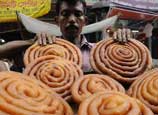
One person's success can only be called a one-time luck; it can only be repeated and becomes others' dreams when there is an institutional element in the story. In Chinese stories, the element is Gaokao. We can even say that Gaokao is a dream-maker. Without it, we would not own fairness and the Chinese Dream. The concept of Chinese Dream became popular because of those stories told repeatedly by those brilliant students from remote areas. Every individual story of theirs became collective national stories, which gave hopes to other people. Stories over the 30 years after the Reform and Opening-up are the stories of several generations starting from Gaokao and becoming successful. Today, the senior executives who sip coffee and talk in English in the office buildings from the Bund in Shanghai to the CBD in Beijing are the heroes of these stories. They have made it and then become models for young people.
That is why we focus on Gaokao and value its fairness, and why we should cautiously eliminate those elements that may damage the exam's fairness when we consider a reform to the exam.
To guarantee the fairness of Gaokao is to protect the Chinese Dream. This fairness is first showed in exam rooms, eliminating fraud and allowing everyone a fair environment. However, this is far from enough. More is at the outside of exam rooms, for example, various kinds of bonus points are damaging fairness. Moreover, the process of correcting exam papers by teachers has to be fair. Irresponsible marking is a crime against maintaining fairness. Admission is another important part. Being fully open and transparent can avoid the abuse of power.
People with power in the exam, please treat every student, every step and every exam paper with responsibility, because that is not just a paper; it has a dream inside; it is our Chinese Dream.

















 China's Chongqing issues orange-coded alert of heat
China's Chongqing issues orange-coded alert of heat


![]()
